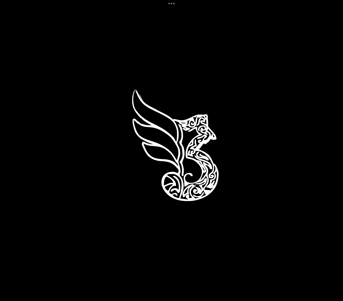Ranveer Allahbadia : A Mistake, A Mirror And A Moment Of Reckoning
The Gentlemen Anomaly
3 min read
Some mistakes are personal
Some are cultural
And some mistakes become cultural moments.not because of one person’s error, but because they expose a deeper problem in society.
Ranveer Allahbadia, aka BeerBiceps, is one of India’s most recognized content creators. A self-help guru, entrepreneur, and podcaster, he built his brand on positivity, ambition, and personal growth. But in a recent episode of India’s Got Latent, his words sparked a backlash that went beyond just one bad joke.
What happened wasn’t just about one person crossing the line.
it was about the kind of humour we’ve normalised, the consequences of mass influence, and the blurry boundary between freedom of speech and accountability.
This isn’t a takedown.
This isn’t a defense.
This is an honest look at the controversy,
its root causes, and what it says about the digital age we live in.
What Happened?
Ranveer Allahbadia, along with several other YouTubers, participated in India’s Got Latent, a comedy show hosted by Samay Raina. During the show, Ranveer made an inappropriate remark toward a contestant—one that quickly led to public outrage.
Following the backlash,
he issued a public apology, stating that comedy is not his forte and expressing regret for his lapse in judgment.
But by then,
the controversy had escalated beyond just an apology.
Legal complaints were filed, FIRs were registered, and the Maharashtra Cyber Cell initiated action against the show. Fellow comedian Samay Raina removed all episodes of India’s Got Latent from YouTube, and the debate over comedy, accountability, and cancel culture exploded online.
But is this really about Ranveer?
Or
is this about something bigger?
Normalisation of Misogyny
This isn’t just about Ranveer Allahbadia.
It’s about how, for years,
certain types of humour have thrived
in digital spaces without accountability.
We’ve seen it before:
• Stand-up comedians getting laughs by objectifying women or making rape jokes.
• Influencers casually using sexist language in podcasts or vlogs.
• Social media creators pushing offensive humor under the guise of “dark comedy.”
Ranveer’s remark wasn’t an isolated mistake.
it was part of a larger culture
where offensive humour is excused until
someone finally calls it out.
In many cases,
when people criticise such content, they’re met with:
“It’s just a joke.”
“Don’t take everything so seriously.”
“Freedom of speech should allow us to say anything.”
But let’s be clear:
Freedom of speech doesn’t mean freedom from consequences.
If your humour comes at the expense of someone’s dignity,
then it’s not just a joke.
it’s a reflection of what society accepts.
And society is finally starting to push back.
The Thin Line: Freedom of Speech vs. Accountability
Some might argue:
“Why are we getting so sensitive?
Isn’t comedy supposed to push boundaries?”
Absolutely. Comedy should challenge society
but not dehumanise it.
“Good comedy punches up, not down.”
The problem with normalising offensive humour is that
it stops being humour. it becomes social conditioning.
If we laugh at degrading jokes long enough,
we start to believe in them.
So no,
Ranveer Allahbadia shouldn’t be
“canceled” or “destroyed.”
But he should be held accountable.
Not just as an individual,
but as a part of a culture that needs to change.
Why Cancel Culture Isn’t the Answer
People make mistakes. Human beings are flawed.
Should this controversy end Ranveer Allahbadia’s career?
No.
But should he face consequences and learn from it?
Absolutely.
Cancel culture has a habit of destroying people instead of allowing them to grow.If someone genuinely acknowledges their mistake,
apologises !,
and makes an effort to improve,
then they should be given that chance.
The question is—will Ranveer truly learn from this,
or will this just be a PR move to clean up his image?
That’s what separates genuine accountability from performative apologies.
This moment isn’t about Ranveer Allahbadia alone.
It’s about a larger shift in digital culture.
For too long, we’ve let influence outweigh responsibility.
For too long, we’ve let offensive humor slide under the excuse of “it’s just content.”
For too long, we’ve allowed those with massive platforms to speak without thinking about the weight of their words.
Now? Things are changing.
This isn’t the end of humor.
This isn’t the end of freedom of speech.
This is simply the end of getting away with using them as excuses for harmful behavior.
And that?
That’s progress.
Thank you!

